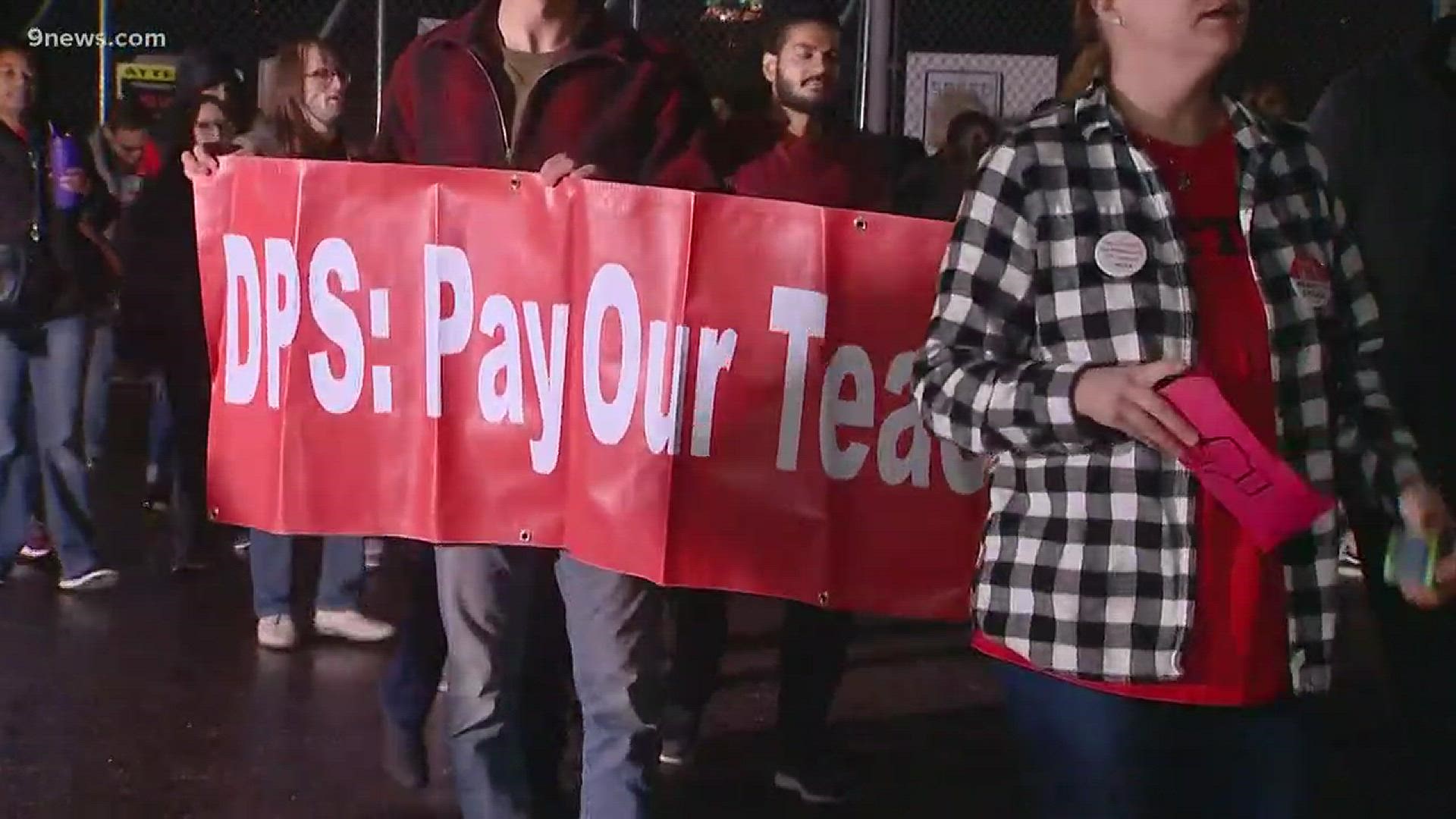Despite all the momentum heading toward a strike this month, everything stopped when Denver Public Schools filed an official request for the state to intervene on Wednesday.
That moved launched a legal protocol that both sides must follow as the state decides whether or not to intervene, as explained by Alexandra Hall, director of Division of Labor and Statistics for the Colorado Department of Labor and Employment.
1. Union has 10 days to respond to the DPS request for intervention into the labor dispute.
The Denver Classroom Teachers Association has stated it does not want the state or governor to intervene and plans to file a response sooner rather than later.
2. Once union responds, the Department of Labor and Employment has up to 14 days to decide whether or not to intervene.
"The legislature did not intend for the state to make a decision like that without weighing the facts of the situation," Hall said.
3. If the state does intervene, the options it can offer are more mediation, closed-door negotiations and unbiased fact-finding.
"Do we think one of those tools truly would be effective at moving the discussions much further than where they are now?" Hall said.
4. During the teachers strike in Pueblo last year, neither side requested intervention and they had already completed its own unbiased fact-finding study. So, the state did not intervene and allowed the strike which lasted five days.
"The Collective Bargaining Agreement for Denver Public Schools and the Denver Classroom Teachers Association does not require fact-finding before a labor dispute," Hall said.
5. If the Department of Labor or governor decides to not intervene, the strike will go on.
At any time during the process and during a strike, both sides can resume negotiations at the bargaining table.
SUGGESTED VIDEOS | Local stories from 9NEWS

